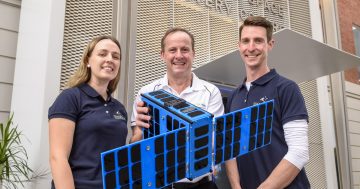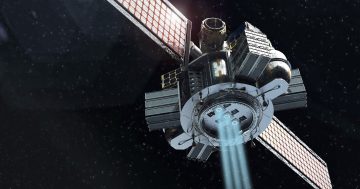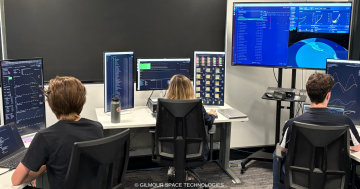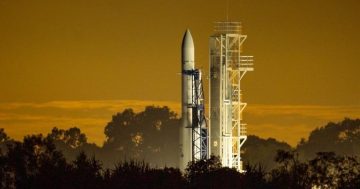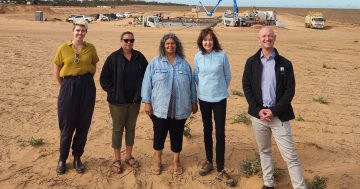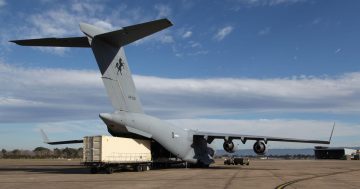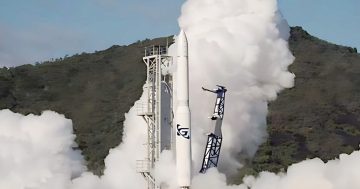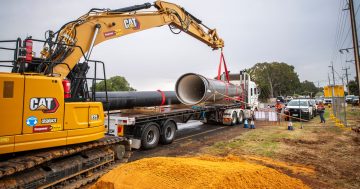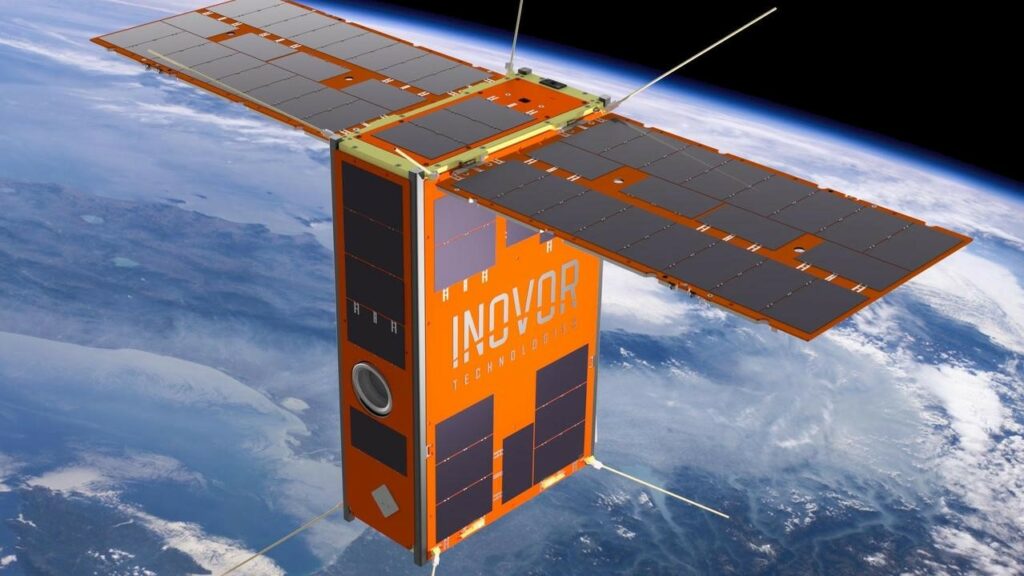
An artist’s impression of the Kanyini satellite, which was named by Findon High School children after the Pitjantjatjara word describing the principle of responsibility and unconditional love for all of creation. Photo: Lot Fourteen.
Ahead of its launch in California this year, South Australian satellite Kanyini has successfully completed its Environmental Stress Screening (ESS) at the Australian National University in Canberra.
Midway through this year the project will be sent into orbit from the Vandenberg Space Force Base, while onboard SpaceX’s Transporter-11 mission.
Its mission will be using its dual Internet of Things (IoT) and Hyperscout 2 imager payloads to deliver critical space data for use by government and research institutions in their search for knowledge, particularly in relation to sustainability and climate impacts.
The satellite imager’s enhanced onboard processing capability and advanced Artificial Intelligence algorithms provides it with the ability to support rapid decision-making for time-critical applications like smoke detection for bushfires and a range of other services.
Deputy SA Premier and Minister for Industry, Innovation and Science Susan Close said the Kanyini build was a remarkable example of the state’s space industry collaboration and expertise driving major advances in local capability.
“The successful completion of this critical milestone brings us one step closer to realising our mission of seeing home-grown South Australian space technologies launched into low Earth orbit,” said Ms Close.
“We are excited about the possibilities that Kanyini holds both in terms of building space heritage for South Australian space companies and the information it will provide to benefit our communities and services here in South Australia.”
Last week the satellite remained fully operational throughout its testing at the ANU’s National Space Test Facility, which means the SA-based mission team can begin its final manufacturing phase before the launch.
Kanyini Mission Director Peter Nikoloff said in reaching this milestone the satellite had already achieved one of the key goals for the mission, building the capacity of the Australian space industry and advancing the local expertise within the sector.
“With all the payloads integrated and having passed this rigorous testing phase, Kanyini is on track for a successful mission,” Mr Nikoloff said.
SmartSat Cooperative Research Centre is leading the mission, with support from the State Government, Adelaide-based commercial satellite manufacturer Inovor Technologies, and global IoT provider Myriota.
The satellite was fully manufactured in Adelaide’s Lot Fourteen, before heading to Canberra for the ESS testing. It involved two weeks of challenging trials, including exposing the satellite to extreme temperature variations, intense vibrations, and crushing vacuum conditions.
This phase of testing was to ensure the satellite would be able to withstand the harsh physical and environmental conditions it’s expected to encounter over its operational life in space.
Inovor founder and CEO Dr Matt Tetlow said the stellar results not only validated the meticulous testing processes implemented but also the steady commitment of the team in producing world class technology.
“Our satellite bus technology is robust, resilient and ready to pioneer the next frontier of space-based applications,” said Dr Tetlow. “Our team has worked very hard over the past few years and is excited about the impact our technology will make in advancing Earth observation capabilities.”
Upon its launch, Myriota co-founder Dr David Haley said Kanyini would enhance their network and facilitate critical IoT sensing worldwide, addressing issues such as water quality, crop health and bushfire resilience.


